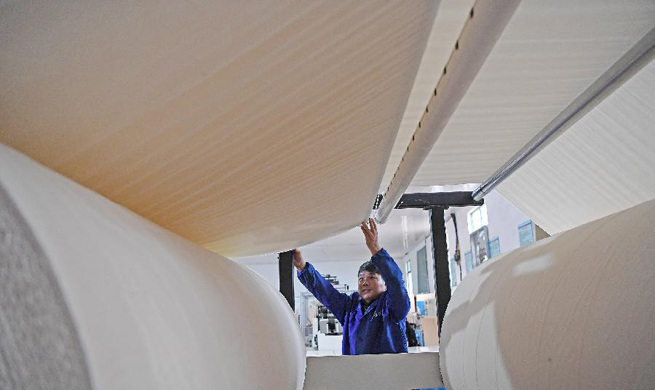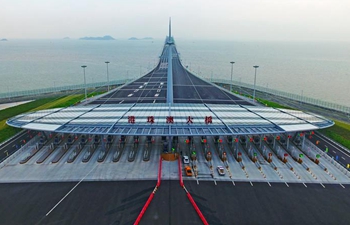HARARE, Oct. 26 (Xinhua) -- The Zimbabwean Treasury has proposed to drastically reduce the national budget deficit in 2019, state media reported Friday.
The reduction will be made through interventions such as limiting government borrowing from the central bank, tightening of Treasury Bills issuances and cutting travel and wage bills.
The Herald newspaper said Finance and Economic Development Minister Professor Mthuli Ncube had said re-orientation of expenditures from consumptive spending to developmental priorities would be key in the 2019 budget.
In a Pre-Budget Strategy Paper approved by Cabinet on Tuesday, Ncube said he would right-size public employment; rationalize posts in the public service, strengthen wage bill management, reduce travel expenditures and review expenditures on fuel benefit levels from January 2019.
Treasury will also curtail acquisition and provision of vehicles by the State, including replacement of condition of service vehicles, enforce measures on the use of Government Operational Vehicles by public officers, rationalize foreign service missions, review of parliamentary sitting allowances and limit expenditures on by-elections.
"The 2019 Budget Strategy Paper proposes drastic reduction of the budget deficit to 5.2 percent of Gross Domestic Product in 2019, and subsequently to 3.5 percent in 2020 and 3.1 percent of GDP by 2021, making us comply with the SADC threshold of below 3 percent of GDP," he said.
He said there was need to contain the fiscal deficit as international best practice and SADC adopted thresholds for sustainable public indebtedness were pegged at 60 percent of GDP.
"By end of 2018, it is estimated that the statutory limit of 70 percent is likely to be exceeded in view of the current borrowing trends from the domestic market. This underpins the urgency for containing the fiscal deficit," he said.
Among the proposed measures to contain the deficit was limiting government borrowing from the central bank which surpassed 27 percent in 2017 against the stipulated 20 percent.













